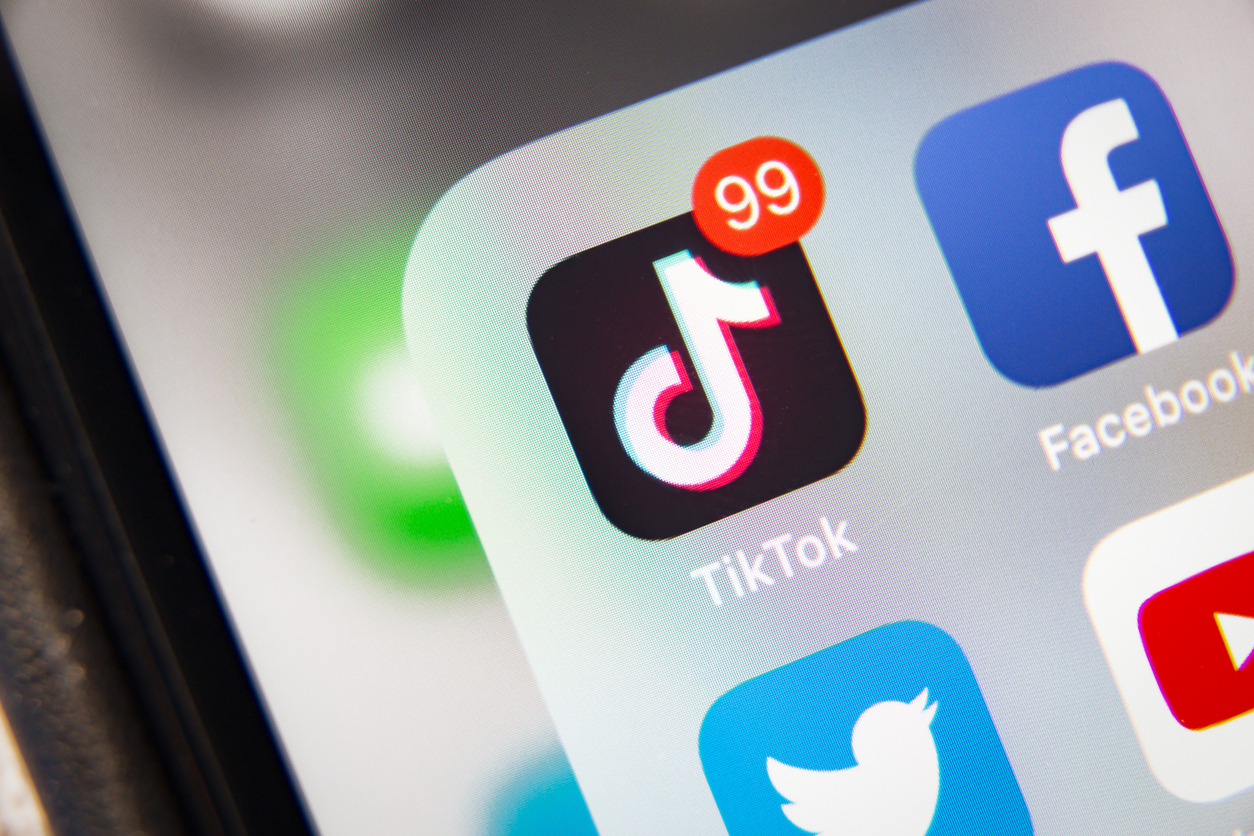The Scoop: The Biden campaign joins TikTok amid China controversy
Plus: Temu’s Super Bowl ad raises eyebrows; AI could lead to “middle-management collapse.”

The Biden campaign is officially on TikTok.
The reelection campaign’s first video features President Joe Biden himself, casually answering a series of questions about the Super Bowl, including a playful jab at the idea that Democrats and Taylor Swift rigged the game in Kansas City’s favor. It’s already garnered more than 4.5 million views, a victory for a president who is struggling to connect with younger voters and to fend off questions about his own age.
@bidenhqlol hey guys
But the campaign joining TikTok also raises awkward questions amid ongoing governmental concerns about China’s influence in the wildly popular app.
As the Washington Post reports:
TikTok has come under fire from Republicans, who’ve criticized the app’s ties to its Chinese parent company, ByteDance.
Biden’s campaign said that they’re taking advanced safety precautions around their devices and incorporating a protocol to ensure security of the account. The campaign’s presence is independent from the ongoing review by the Committee on Foreign Investment in the United States, the government agency that’s tasked with investigating corporate deals for national security concerns and has been negotiating with TikTok owner ByteDance.
Why it matters: From a PR perspective, this is a double-edged sword. TikTok is a critical cultural and news touchstone for Americans under 30. Being on the platform is one of the best ways to reach a voting bloc Biden needs to turn out to the polls if he’s to beat populist favorite Donald Trump later this year. From that perspective, it’s a good decision in terms of meeting your audience where they are.
But TikTok is banned from devices owned by the federal government due to security concerns related to the involvement of the Chinese government in ByteDance, TikTok’s parent company. Dozens of states have also banned the app from government-owned devices, while Montana has tried (so far unsuccessfully) to ban the app outright.
Now, it’s important to note that it isn’t the White House on TikTok. It’s the campaign, which is not the federal government. But if the security risks are so great the app needs to be banned on government devices and Biden is still directly participating in the app because it serves his political interests, that sends a mixed message. It opens up a new line of attack for his political opponents and creates confusion for the government agencies following the rules: It’s OK for the boss to use this technology when it suits him, but not for us?
Continued clear messaging about the distinction between the campaign and the White House and ongoing security measures being taken will be key in managing this tricky tightrope.
Editor’s Top Reads:
- Here’s a clear example of just how powerful TikTok is and why the Biden campaign wants so badly to be there: The Pink Stuff. It was once an obscure British cleaning goo until an Instagram home renovation celebrity sang its praises. From there, it migrated to TikTok and became a sensation, quadrupling its sales. But the runaway success of the product is entirely outside the control of the company behind The Pink Stuff, the New York Times reported. “We don’t spend money on traditional advertising,” Henrik Pade, a managing director at parent company Star Brands, said. “It’s fully viral. Which is a little scary because we haven’t got any control over the message about our brand.” That’s both the promise and the peril of PR: You send your message out into the world and while you can try to shape it, you can’t control it. And sometimes, it controls you.
- And in other China controversy news, deep discount retailer Temu returned to the Super Bowl last night amid its own scrutiny from American lawmakers. In spots that ran several times, a catchy tune urging people to “shop like a billionaire” ran over a CGI animated scene. The ads aired after several Republican lawmakers urged Paramount not to run the ad, due to concerns over the company’s labor practices, including accusations of forced labor. The ad ranked among the worst of the night for many and received backlash on social media – all while undoubtedly introducing many people to the cheap shopping site. For full Super Bowl coverage, click here.
- It appears that generative AI is contributing to some of the white-collar job cuts that have rocked the technology industry in recent months. “Unlike previous waves of automation technology, generative AI doesn’t just speed up routine tasks or make predictions by recognizing data patterns,” the Wall Street Journal reported. “It has the power to create content and synthesize ideas — in essence, the kind of knowledge work millions of people now do behind computers.” The Journal reports that the use of this technology could lead to a “middle-management collapse” as these workers are replaced with machines. White-collar workers have proven more immune to automation pressures over the recent decades, but now that could change.
Allison Carter is editor-in-chief of PR Daily. Follow her on X or LinkedIn.







